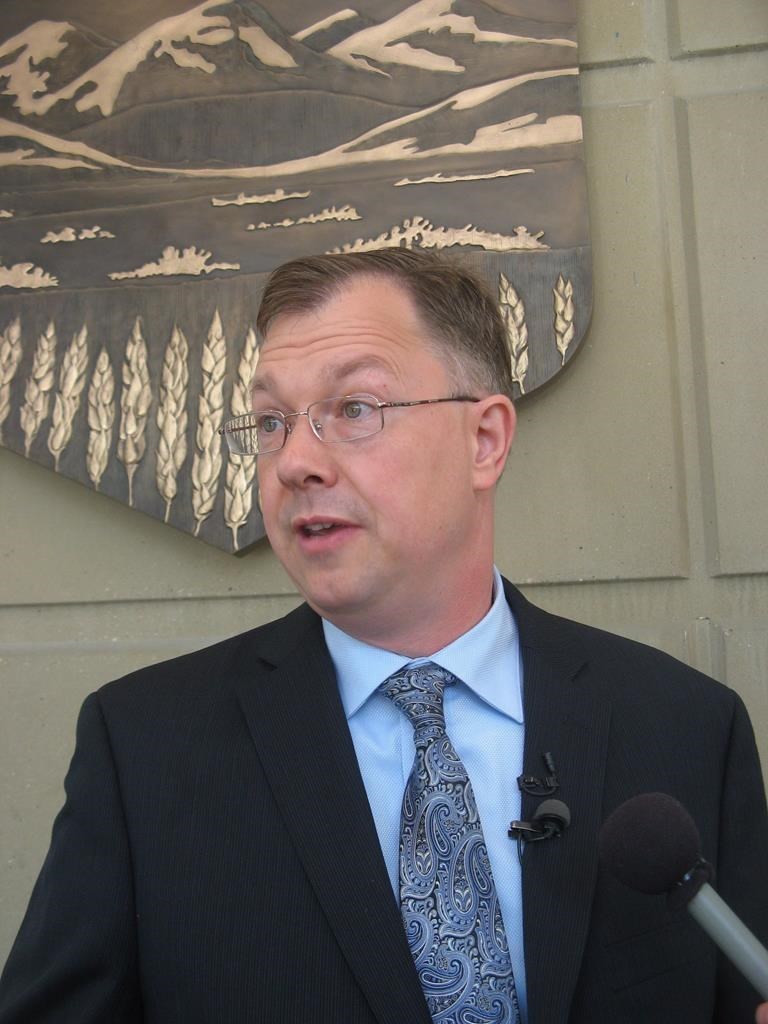WINNIPEG — Two Alberta-based lawyers will not be able to practise anywhere in Canada for three years after admitting to having a private investigator spy on a Manitoba judge.
John Carpay and Randal Jay Cameron agreed Friday to a peace bond, which also forbids them from contacting Chief Justice Glenn Joyal of the Manitoba Court of King's Bench, who noticed he was being followed by a black sport utility vehicle in July 2021 and confronted the driver.
In exchange for the peace bond, the Crown stayed charges of obstruction of justice and intimidation of a justice system participant.
Associate Chief Justice Shane Perlmutter called the surveillance unethical and dishonourable.
"What these lawyers did is nothing short of an affront to the administration of justice," Perlmutter told court Friday in accepting the plea deal.
Carpay is president of the Calgary-based Justice Centre for Constitutional Freedoms, a legal advocacy group that has fought against COVID-19 public health orders. Cameron is a lawyer who does work for the centre.
In 2021, the two represented several churches that launched a court challenge against Manitoba's temporary ban on in-person religious services. Joyal was the presiding judge.
The lawyers hired a private investigator to follow three public officials. Then-premier Brian Pallister and chief public health officer Dr. Brent Roussin were the other targets. Joyal was the only target in the justice system.
Joyal noticed the SUV following him after he left the Winnipeg courthouse to run errands, court was told in an agreed statement of facts Friday. Outside one store, Joyal turned the tables on the private eye.
"He confronted the driver, who avoided eye contact as the chief justice was honking at him and getting his licence plate," Crown attorney Chris Vanderhooft told court.
Police investigated and later charged Carpay and Cameron. Earlier this year, the Law Society of Manitoba permanently barred the two from practising law in Manitoba. It also imposed fines of $5,000 each.
Carpay and Cameron have said they did not intend to intimidate Joyal or interfere with the court case involving their clients. They have said their only intent was to see whether public officials were breaking COVID-19 restrictions. They apologized to Joyal in an earlier hearing.
"He in no way sought to intimidate or obstruct," said Carpay's lawyer, Saul Simmonds.
"He is a believer in the judicial system."
Cameron's lawyer told court Cameron was not involved in the decision to have the judge followed but had known about it.
Joyal eventually ruled against the churches. He said the public health orders did not violate the Charter of Rights and Freedoms and public health officers have the authority to issue the orders.
The churches appealed the ruling, and lost again.
Vandherhooft told court he spoke with Joyal about the plea deal.
"While he remains unimpressed by the (lawyers') conduct, he understands the resolution and the closure that this will bring, and the consequences to each of the accused."
This report by The Canadian Press was first published Oct. 27, 2023
Steve Lambert, The Canadian Press




